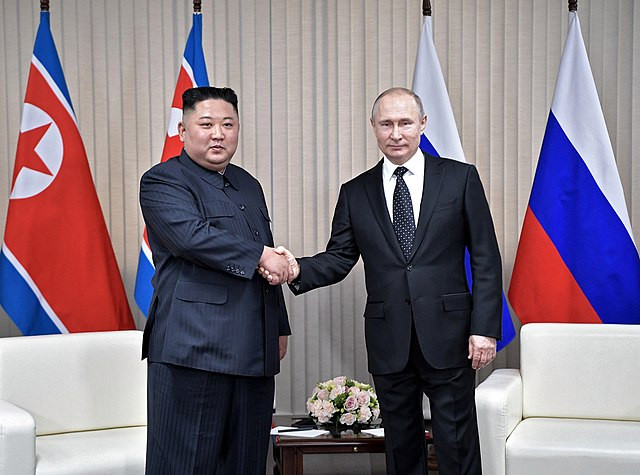The Pentagon confirmed on Monday that North Korea has deployed around 10,000 soldiers to Russia, raising alarm about the intensifying conflict in Ukraine and potential geopolitical ripple effects across the Indo-Pacific region. U.S. officials, including Defense Secretary Lloyd Austin, emphasized that Ukraine would not face new restrictions on its use of American-supplied weapons against these North Korean forces, should they be sent to the front lines. This development follows reports that some North Korean troops have already moved closer to the Ukrainian border, prompting concerns in both Washington and NATO.
"A portion of those soldiers have already moved closer to Ukraine, and we are increasingly concerned that Russia intends to use these soldiers in combat or to support combat operations against Ukrainian forces," said Pentagon spokesperson Sabrina Singh during a briefing. NATO Secretary General Mark Rutte also confirmed the deployment of North Korean military units in Russia's Kursk region, an area that has seen recent Ukrainian incursions during its summer offensive.
While Pentagon officials have not confirmed the exact location of the North Korean troops, Singh noted, "It is likely that they are moving in that direction towards Kursk." This aligns with growing fears that Russia is expanding its reliance on foreign allies as it continues to face substantial losses in Ukraine. Ukrainian President Volodymyr Zelenskyy warned last week that North Korean personnel could soon be active on the battlefield, describing the situation as a "new threat" that could prolong the nearly three-year conflict.
The deployment of North Korean troops marks a notable escalation in Russia's strategy, which has increasingly relied on external military support. In recent months, Russia has sought assistance from Iran, which has supplied drones, and now North Korea, which has contributed large amounts of ammunition and artillery, according to U.S. intelligence. Secretary of Defense Austin described the use of North Korean soldiers as a significant indicator of Russia's growing desperation. "This is an indication that [Putin] may be in more trouble than most people realize," Austin said, adding that the move reflects Russia's heavy casualties in the prolonged conflict.
The confirmation of North Korean troops in Russia has sparked immediate concern in both Europe and Asia. NATO's Rutte characterized the development as a "dangerous expansion of Russia's war" and a violation of United Nations Security Council resolutions. "The deployment of North Korean troops represents a significant escalation in their involvement in Russia's illegal war," he said, calling on both Russia and North Korea to cease these actions immediately.
The geopolitical implications extend beyond the Ukraine war. In Washington, Austin and Secretary of State Antony Blinken are scheduled to meet with their South Korean counterparts later this week. The involvement of North Korea in the European theater is likely to exacerbate tensions in the Indo-Pacific region, with officials from Japan, South Korea, and Australia closely monitoring developments. President Joe Biden also weighed in, calling the North Korean deployment "dangerous. Very dangerous."
Despite these warnings, Russia's leadership has downplayed concerns. Russian Foreign Minister Sergey Lavrov dismissed the reports of North Korean troops in Russia, instead focusing on the cooperation agreements signed between the two countries. Meanwhile, Kremlin spokesperson Dmitry Peskov denied that this military alliance was aimed at other nations, claiming that the cooperation between Moscow and Pyongyang "is not directed against third countries." However, U.S. officials remain skeptical, pointing to growing evidence of joint operations between the two nations.
In response to North Korea's involvement, there is speculation that NATO allies may adjust their restrictions on Ukraine's use of Western-supplied long-range weapons. For now, Pentagon officials reiterated that there will be no limitations on Ukraine's use of U.S. weapons against North Korean forces should they reach the front lines. "If we see DPRK troops moving in towards the front lines, they are co-belligerents in the war," Singh said, adding that this is a "calculation that North Korea has to make."
While North Korea continues to deny any direct involvement in the conflict, its support for Russia appears to be deepening. U.S. intelligence suggests that, in return for supplying artillery and ballistic missiles, North Korea is receiving advanced technology from Russia. National Security Council spokesperson John Kirby noted that North Korean troops were likely undergoing combat training in eastern Russia. "What exactly they're doing remains to be seen, but this is certainly a strengthened relationship between Russia and DPRK," Kirby said.




